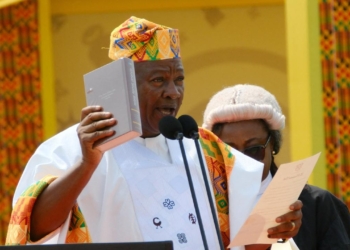Ghana is pushing for the Mole National Park and Lake Bosomtwe to be given a UNESCO World Heritage status; a move that will further boost and protect the two heritage sites.
A World Heritage Site is a place (such as a building, city, complex, desert, forest, island, lake, monument, or mountain) that is listed by UNESCO as being. outstanding cultural or physical significance.
Located in the Northern Region, the Mole National Park is the largest and most prestigious protected wildlife area in Ghana. It covers an estimated 4,840 square kilometers and is home to several species of mammals and birds.
The Ghana Museums and Monuments Board has since January 17, 2000 applied to UNESCO to ascribe the game reserve a world heritage status but approval is yet to be given.
Lake Bosomtwe, which is the only natural lake in Ghana and situated 30km South East of Kumasi in the Ashanti Region within an ancient impact crater of about 10.5 kilometres in diameter, is one of the popular recreational areas in the country.
President John Dramani Mahama on Wednesday revealed he has made a strong case for the two heritage sites to be adopted by UNESCO under its world heritage sites.
He told journalists on arrival from the UN General Assembly in New York that he held discussions with the Director General of UNESCO at which he “made a strong case for the Mole Game Park and Lake Bosomtwe to be recognized as world heritage sites”.
President Mahama said he also made a case to UNESCO to get its help in improving the conservation of the Akwamu Gorge in order to boost the tourism potential of the area.
“The Akwamu Gorge, also with a variety of almost extinct species, was also discussed to see how we can improve both conservation and tourism in that area,” President Mahama said.
The Akwamu Gorge is an ungazzetted forest located between Atimpoku and Akwamufie on the eastern side of Volta River.
The hill provides a rare panoramic view of the lower regions of the Volta River system. The community forest is owned jointly by a number of royal families in the Akwamu Traditional Area.
About 20 species of medium to large mammals including about five primates are known to occur in the community forest and adjoining areas. Some of the large mammal species include western pied colobus monkey, olive colobus monkey, Mona monkey, red river hog, maxwell’s duiker, bay duiker, royal antelope, long-tailed and tree pangolins and the African golden cat.
Sign up for Ghana Star News to receive daily email alerts of breaking news in Ghana. GhanaStar.com is your source for all Ghana News. Get the latest Ghana news, breaking news, sports, politics, entertainment and more about Ghana, Africa and beyond.

